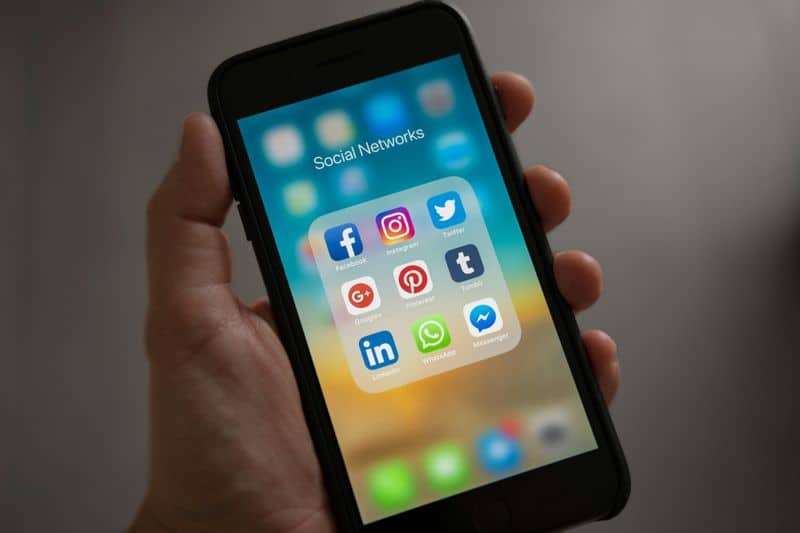Have you ever walked away from a conversation feeling like you revealed too much? Sharing personal information helps build connections, but there’s a fine line between openness and oversharing.
Recognizing when you’re crossing that line can improve your relationships and protect your emotional well-being.
1. Filling Every Silence
That urge to jump in whenever conversation lulls might be more than just friendliness. Many people feel uncomfortable with silence and rush to fill it with personal stories or information that wasn’t meant for sharing.
Next time you feel this impulse, try counting to three before speaking. This simple pause gives others space to contribute and helps you consider whether what you’re about to share is appropriate for your relationship level.
Remember that comfortable silence is actually a sign of a healthy connection. Not every moment needs to be filled with words.
2. Post-Sharing Regret
Your stomach drops as soon as the words leave your mouth. That feeling of immediate regret after sharing something personal is your internal boundary alarm going off.
Our brains process social interactions constantly, and that sinking feeling is actually helpful feedback. Pay attention to which topics trigger this response—they’re likely areas where you’re sharing beyond your comfort zone.
A useful strategy is the headline approach: start with just the main point of your story and gauge the listener’s interest before diving into intimate details. This builds trust gradually rather than all at once.
3. Digital Crickets After Messages
Sent a long, detailed message and got back just a thumbs-up emoji? When your texts or emails receive consistently delayed or minimal responses, the recipient might be feeling overwhelmed by your level of disclosure.
Digital communication lacks the immediate feedback of face-to-face conversation. Without seeing someone’s facial expressions, it’s easy to miss cues that you’re sharing too much.
Try keeping messages concise and matching the other person’s communication style. If they send brief updates, respond similarly rather than with lengthy personal narratives. This digital mirroring helps maintain comfortable boundaries.
4. Emotional Social Media Dumps
Raw, unfiltered emotional posts might feel therapeutic in the moment, but broadcasting personal struggles to your entire network often leads to next-day regret. Social media creates an illusion of intimacy that doesn’t actually exist with most of your followers.
Before hitting that post button during an emotional moment, try the screenshot method. Take a screenshot of what you wrote, then wait 24 hours before deciding whether to share it publicly.
Many therapists recommend journaling instead—you get the emotional release without the potential consequences of sharing vulnerable feelings with hundreds of casual acquaintances.
5. The Rhetorical Boundary Check
“Is this too much information?” you ask, then continue sharing before the other person can actually answer. This rhetorical question shows you sense you might be crossing a line but aren’t really waiting for feedback.
Genuine boundary awareness means actually pausing after asking this question. Watch the other person’s body language—are they leaning away, checking their phone, or giving polite but detached nods?
Practice turning the conversation back to them after sharing something personal. A simple “What about you?” creates balance and shows you value their perspective, not just an audience for your stories.
6. The Polite Smile Response
Genuine engagement looks different from polite tolerance. When your stories consistently receive tight smiles, brief nods, or generic responses like “wow” or “that’s interesting,” you might be sharing beyond the listener’s comfort zone.
Look for reciprocal sharing as a healthy sign. In balanced conversations, both people gradually increase disclosure levels together, building trust through mutual vulnerability.
A fun challenge: in your next three conversations, focus on asking thoughtful questions instead of sharing personal stories. Notice how this shift affects the quality of your interactions and whether people seem more engaged.
7. Relationships That Quickly Fizzle
Meeting someone new, feeling an instant connection, sharing your life story, then never hearing from them again? Fast intimacy often leads to fast disappearances. Dumping personal information too quickly can overwhelm new acquaintances before trust is established.
Healthy relationships develop gradually, with disclosure deepening over time. Think of sharing like swimming—wade in slowly rather than diving headfirst into the deep end.
For your next new connection, challenge yourself to focus on shared experiences instead of personal revelations. Activities build bonds naturally, allowing trust to develop before intimate details are exchanged.








